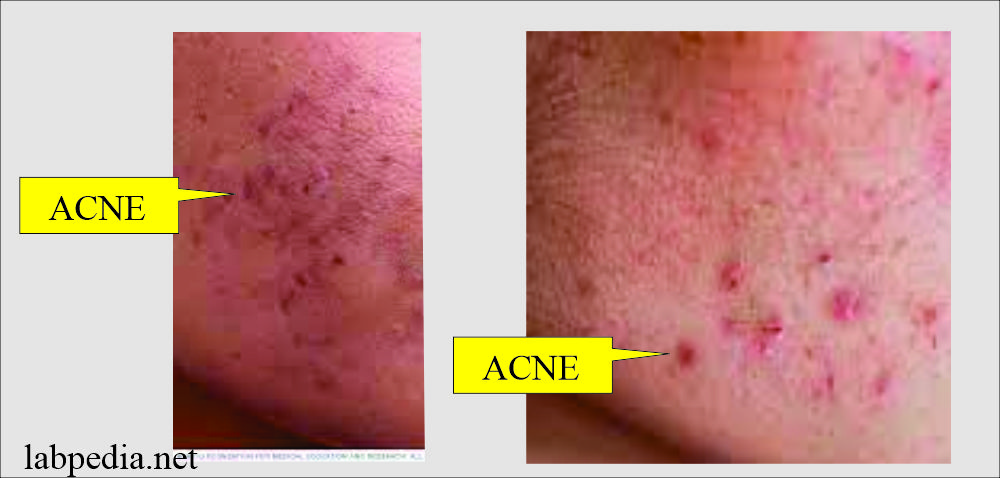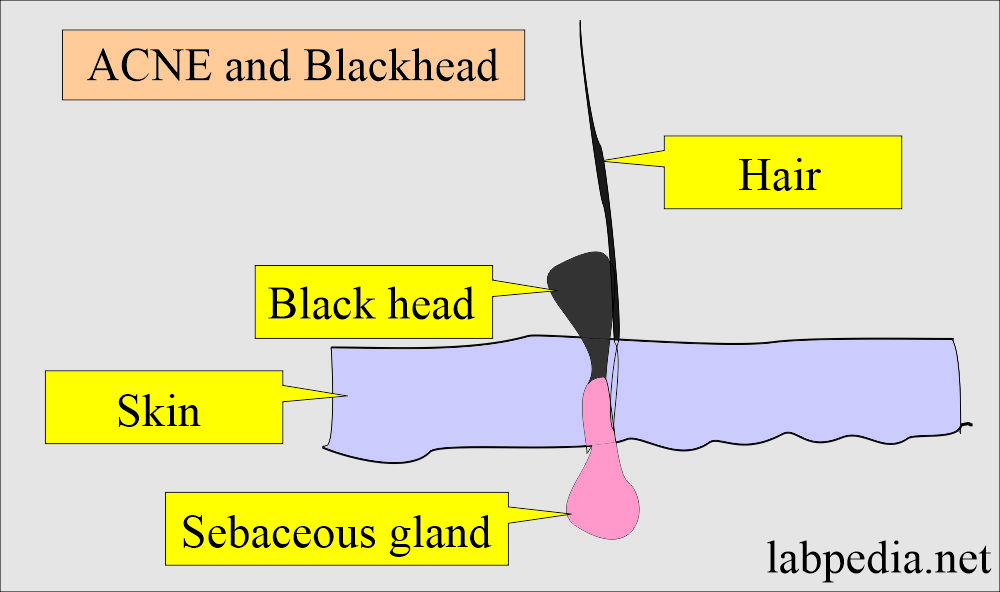ACNE and Its Management
ACNE and Its Management
How will you define acne?
- It is inflamed and infected sebaceous glands of the skin.
- It is characterized by red pimples on the face and is common in teenagers.
What is the mechanism of acne?
- 80% of teenage boys get acne and blame male hormones.
- Boys get more acne than girls.
- Girls get acne during their 20, 30, and 40 because of their cosmetic use.
- Our skin has oil glands on the face, chest, and back that will lubricate the skin by producing sebum.
- The oil will flow out of these glands. There are tiny ducts through which oil will come to the skin.
- When these ducts are plugged with sebum, bacteria, and dead epithelial cells shedding from the ducts, this whole process leads to ACNE.
- On the surface of the skin, you can see the blackhead.
- This condition usually appears in adolescence, possibly due to hormonal changes.
- Because of the hormone, these glands become hypertrophic and produce more oil.
- It is suggested that oil makes sticky-dead cells and may block the ducts.
- This stage will be over after the teenager.
What are the Factors for the possibility of acne?
- Some people believe that it is because of gene abnormality.
- Hormone changes are considered one of the causes. When you give contraceptive pills, it may improve acne.
- If one has acne and an irregular menstrual cycle, one needs to consult a doctor.
- The use of cosmetics is also blamed for leading to acne. It is postulated that cosmetics, particularly oily makeup, block the ducts and cause acne.
- Stress can lead to hormonal changes.
- Some of the drugs may lead to acne. Medicines like Dilantin may cause acne.
- The profession also has a link to the people working in the kitchen over the deep-fat fryers in fast-food restaurants.
- There is no relationship between food and acne. You can eat chocolates and french fries.
ACNE Management:
- Never press or rub the acne or manipulate pimples. Because below the surface of the acne is sebum and bacteria, in this area, skin may do scarring or inflammation.
- Benzoyl peroxide:
- You can get over-counter various medications containing benzoyl peroxide. It helps to break the plug of dead skin cells, bacteria, and the oil in the pores.
- Start with the lower concentration of benzoyl peroxide. You can increase concentration. You can use it once or twice a day.
- Use it for 6 to 8 weeks and see the result
- Sulfur or resorcinol:
- Products Containing these chemicals will unplug the oil glands by irritating the skin.
- Over-the-counter preventive products can be used. Put this on acne-prone areas, and don’t put on the existing acne.
- You can apply it over the face, back, and chest. Avoid lips and eyes.
- Washing the oily skin with hot water and soap will prevent the formation of acne.
- You need to wash your face ten times a day. This washing process will remove the oil from the skin.
- Use soap containing benzoyl peroxide, which will dry your skin.
- Try to wash your face properly and gently. Use mild, unscented soap like Dove or Neutrogena. Rub with your fingers lightly, and don’t use a washcloth. Use warm water.
- Don’t use oily creams on your hair and face. Most of the moisture is oily.
- For cosmetics, use water-based make-up material.
- Some people believe that mild sun exposure prevents acne.
- Avoid pomade oils and comedogenic cosmetics.
- Sometimes, you have to give antibiotics like tetracycline (1 to 2 grams/day) or erythromycin (1 gram/day).
What is the Purpose of the treatment?
- It is to decrease the inflammatory process.
- To prevent scarring.
What is the prognosis?
- It is excellent, and there is spontaneous remission.
- Sometimes, it may continue into adulthood.



I read your blog, it was really good. This blog information was very helpful. I have learned a lot from this blog. Please keep posting blogs like this, so people can find what they want.
https://www.maisonsante.ae/
Thanks for the comments. I am trying to improve the lab section as well.